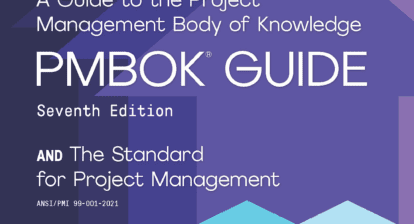The top two stories in the news last week were eerily similar.
Sequestration cuts $85 billion from the Federal budget in seven months.
Yahoo! ends telecommuting in June in an effort to boost communication and collaboration.
The arguments for and against struck common chords:
- All opposed: It is a blunt instrument that causes unnecessary pain and doesn’t address the real problem.
- All in favor: It gets the job done. It’s the right medicine for a sick patient.
I know why we all care about sequestration. These cuts will ripple broadly, taking a bite out of an economy still struggling to recover from the Great Recession. But why does HR policy affecting at most a few thousand tech workers at Yahoo! set us off?
We don’t know exactly what motivated Yahoo! CEO Marissa Mayer to take this step, but the leaked internal memo gives us some strong clues. It doesn’t seem to be about home-based workers goofing off or under-performing. Instead, the emphasis is on communication, collaboration, speed, and quality. And this is why a ban on telecommuting at Yahoo! is important for all of us, because communication, collaboration, speed, and quality are important for every organization!
Mayer and her executive team seem to be correctly focused on the universal question: “How can we promote a winning culture?” Part of their answer at Yahoo! is working side-by-side (this is only one of several recent cultural changes.) I’m not sure if this is right for Yahoo!, but I don’t count on this idea catching on. At Versatile, the demand for advice on leading virtual teams is growing and for good reason.
Understand the Nature of Collaborative Knowledge Work
It’s easy to see how toiling shoulder-to-shoulder creates informal communication. But the Yahoo! solution isn’t universal because it doesn’t address the foundation of high performance teams.
Set aside manufacturing and retail work that is tightly linked to location. Focus on what we’ve called Knowledge Workers for the past thirty years – the kind of folks we envision working at Yahoo!. These people are engineers, brand managers, software developers, graphic artists, business analysts, accountants, attorneys, technical writers, etc. Some have even begun to call this group Innovation Workers, because they are always working on making improvements, solving problems, creating something new.
What makes these Innovation Workers productive? A combination of organizational culture, individual ability, and team dynamics shaped by intentional leaders.
Let’s break that down a little further.
Culture. The dominant cultural trait in high performance, innovative cultures is trust. Leaders trust team members to bring their best efforts. Those team members trust management to be transparent, to share the rationale behind decisions and to give them honest feedback. Richard Branson, CEO of Virgin, made trust the key message in his evaluation of the Yahoo! policy. “To successfully work with other people, you have to trust each other. A big part of this is trusting people to get their work done wherever they are, without supervision.”
Individual ability. Who are your favorite co-workers? The ones you are always glad to see assigned to your team? Why? What do they bring? Sure, they bring technical expertise. The engineers can calculate, the graphic designers are creative, and the attorneys know the law. But there’s a lot more than expertise that you like about these people. They’re accountable, which is critical. And they know how to work together to solve a problem. They listen, they invite opposing points of view, they present their own ideas rationally, and they run a good meeting. In short, their technical competence is the entry fee. What you really like is their collaboration skills.
Team dynamics shaped by intentional leaders. When a disparate group of people come together to form a productive team, that is no accident. Leaders set a tone and a rhythm for routine interaction. They ensure the team is goal aligned, foster strong personal relationships, pay attention to communication and attend to problems. Standard project management practices are a good example, as are the routine cycles of the Scrum approach to agile software development.
How Can We Promote a Winning Culture?
Is it all a little easier when we are sitting within 500 feet of each other? The tempting answer is “Yes,” but in fact there have been plenty of poisonous teams sharing the same 400 square feet of office space. Proximity isn’t really the answer. Trust, accountability, collaboration, and leadership are the driving factors.
Does distance present real obstacles to productivity and collaboration? Absolutely. But the formula for high performance is the same, no matter the distance. And with recent advances in communication technology we have little excuse to let distance be the barrier.
The real challenge of promoting a winning culture is less about distance and more about size. Yahoo! has over 10,000 employees. Culture is the manifestation of values driven behavior. Creating widespread behavior change at that scale is a significant leadership challenge. The telecommuting decision was a lightning rod, but its impact will be mixed in with dozens of other strategy and policy changes. Quoting the leaked email, “Thanks to all of you, we’ve already made remarkable progress as a company — and the best is yet to come.” We’ll all be watching.
Which brings us back to sequestration: clearly a manifestation of values driven behavior. Can 100 U.S. Senators and 435 members of the House of Representatives shift their values and behavior enough to release their own self-imposed gridlock? We desperately hope so.
Promote a Culture of Innovation
Communication, collaboration, speed, and quality are important for every organization. In 2013 we must add innovation to that list. In our rapidly changing world, few organizations can opt out of creativity and relentless improvement. Like our high performance factors, innovation is the product of culture, individual strengths, and intentional leadership.
Learn more about Versatile’s Course, Leading High-Performance Teams.





